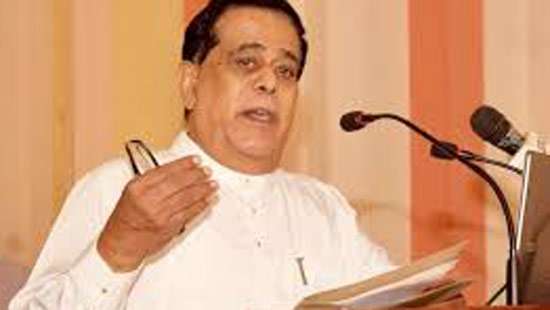Reply To:
Name - Reply Comment

Development of aviation infrastructure facilities of the Bandaranaike International Airport (BIA) are progressing well even amidst the economic crisis and that the enhanced facilities would be available for use by the end of 2024, Civil Aviation Minister Nimal Siripala De Silva said today.
Speaking during the International Civil Aviation Organization (ICAO) at Montreal – Canada today, he said "Development of aviation infrastructure facilities, which include expansion and modernization of the main International Airport of Sri Lanka – the Bandaranaike International Airport (BIA) terminal building, apron, and access roads are progressing well even amidst the economic crisis. We are hopeful that the enhanced facilities would be available for use by the end of 2024 to serve the industry and our travel partners better"
The minister said the following at the conference:
I consider it is a great privilege and distinct honour to have this opportunity to address this august Assembly as the Minister in charge of Civil Aviation of Sri Lanka.
As you all know, for the last decade, the world saw a very promising growth and expansion of the global aviation industry with an average growth rate of over 4.5%, registering the highest ever recorded numbers in respect of all Key Performance Indicators in Aviation. However, with the emergence and rapid spread of COVID-19 pandemic in 2020, the global community had to experience for the first time in the recent history of humanity, severe predicaments in the conduct of typical lifestyle.
Of the many industries that suffered due to COVID -19 travel and tourism were amongst the key industries affected, triggering major economic downturn and social crises, such as connectivity, supply chain disruptions, and challenges to food security. Regardless of the geographical size and location and economic strength, every state in the world was affected and is still struggling to come out from its adverse effects. We are glad that the projected prospect of aviation industry returning to pre-COVID situation is very promis
I wish to place on record the sincere appreciation of ICAO for its leadership, swift action and role played with the spread of COVID - 19 to mitigate its ill effects and provide Member States with assistance, support and guidance in close coordination, collaboration, and cooperation of all concerned, for the continued maintenance of global air transport network.
Sri Lanka is an island located in the Indian Ocean and our economy depends on foreign exchange earnings from tourism, foreign employment, and exports. A major part of our foreign exchange earnings is spent on the import of fuel, medicine, fertilizer, and essential consumables. Sri Lankans enjoy a fairly high living standard founded on the free education and health systems and other social beneficiary schemes. Accordingly, Sri Lanka has a high literacy rate of over 93%, and our life expectancy and infant mortality rates are comparable with the developed states.
Sri Lanka has a good road and rail transport network which provide access to any part of the island. Every citizen of Sri Lanka has access to an international airport within 100 Km from the place of domicile which meet the global yard stick used for measuring of accessibility by air. Sri Lanka’s current population is twenty–two million, and as of 1 August 2022, a total of forty million vaccine doses have been administered amongst its citizens creating a low COVID – 19 risk environment for trade and travel within the country. This has enabled Sri Lanka to reopen its domestic and international airports, and restrictions imposed on travel and social gatherings have been lifted.
However, Sri Lanka is at present facing unprecedented economic challenges resulting from a number of factors, including the aftermath of the COVID-19 pandemic and current global crises. The Government of Sri Lanka is sensitive to the economic hardships faced by the people and is in dialogue with all stakeholders including domestic and international partners with regard to stabilising the situation. In order to minimize the negative impacts on the most vulnerable segments of the population, and to ensure provision of an adequate social safety net, targeted preventive measures are being undertaken by the Government.
Being an island nation, recognizes distinctly the valued contribution of air transport for social inclusion and economic development.
Sri Lanka has published the National Civil Aviation Policy removing numerous legislative, administrative, and operational barriers easing active private sector participation in the establishment and operational of aviation infrastructure facilities and services.,” he said